SUMMARY
This is AI generated summarization, which may have errors. For context, always refer to the full article.
![[OPINION] ‘The pre-pandemic world is dead’: What now?](https://www.rappler.com/tachyon/2022/01/pre-pandemic-world-what-now-january-12-2022.jpg)
The article by Issac J. Bailey in Neiman Reports, “It’s Time to Ditch the Daily COVID-19 Case Count,” is quite the jaw-dropper. And I couldn’t agree more.
He wrote, “Going forward, our job as journalists is to make it clear to our audiences the choices we have and the choices we have made. It is to underscore that there is no going back to the way things were […] Our pre-pandemic world is dead. And it is not coming back.”
He spun his line of reasoning ‘round his physical condition. Rocked by chronic inflammatory demyelinating polyneuropathy or CIDP, he said his body would never be the same again even after treatment. No physical body ever would after enduring four electromyography tests in the course of eight years.
Each test includes medical professionals sending “electric shocks through certain parts of my body and expertly placed needles into large muscles.” Discomfort doesn’t even begin to express how the process may have felt.
The daily COVID-19 count, in Bailey’s eyes, seems to animate a kind of “nostalgia” that projects the disease as something perpetually new, and as something new, we might still be able to change it. It’s candy-wrapped with the optimism that, perhaps, there’s still a good chance that we might soon see a blissful return to “business as usual.”
Thing is, we’ve been down this terrible road for the past two years. We all know it’s not about to let up in the next decade or so. We’re also not as totally ignorant of the virus as when it was first discovered in December 2019 in Wuhan, China. We learned all this at a cost of a global death toll of 5.5 million, including medical frontliners.
So far, we’ve learned how it mutates, how it spreads, and what the symptoms are. We’ve manufactured vaccines, and tracked COVID-19’s virulence to an amazing degree in just two years.
Here’s the rub: returning to that “comfort zone” at the soonest possible time may be like trying to find intelligent life in Malacañang. This is where hope disappoints. The scars are deep, losses considerable, the cost unimaginable.
The world we once knew has been altered significantly. There’s no going back to the old ways.
We are left with one choice: accept our new reality. As journalists, we can help shape this reality into the form that best suits humankind: a world purged of the hate, corruption, misogyny, and tyranny which had crippled the first.
Getting used to changes is easier said than done. Bailey said, “That’s why my real struggle over the past few years hasn’t been CIDP. It has been trying to accept my new body.”
This need for change is foaming right from under our very feet, demanding attention. For instance, our concept of economics should take on newer and more inclusive forms. Our sociopolitical superstructures must fit the framework of our physical and social recovery.
Empathy and freedom must take precedence over the infrastructures of fear and control. To heal at this stage means to accept what the disease has done to us as individuals and a collective. Only then can we move on.
People of varying ideological persuasions, professions, and socioeconomic status must realign within the orbit of shared interests, at least, to some degree. Industry, too, must draw the line: should we build or destroy? Not only people, but the planet itself demands an answer.
Further complexities resulting from unintended consequences, what about those? Suffice it that the scope of the changes is enormous. We haven’t seen the half of it. But if the history of past pandemics has taught us something, such challenges have sparked many a better way of doing things.
How to ink the blueprint needed to carry this out may as well likely be tricky, given the momentum of the mutation of the virus. No sooner have we carved out the newest spires and steeples of such a world than COVID-19 comes in with a new, more transmissible, if deadlier, variant.
Thus, the post-pandemic world must evolve at such speeds as the virus. To achieve this, the frontiers of our sociopolitical and financial systems, as well as sciences, must be porous. They should be able to share information at a blink of an eye.
Which is why this new world should be rinsed of “fake” news, disinformation, and lies. We cannot afford to treat information as playthings, not when there’s a killer virus on the loose. At no time in history is this central to the effort of healing than now.
The recent Senate investigation on disinformation is a crucial step whereby we can address this problem.
Journalists must sooner adapt than fold. I understand how coming to terms with infection while on the job can be agonizing, given the limited resources that we have. Be that as it may, we have to rethink our trails to sources, even as we treat all manner of field work in the same way as we cover conflict zones. Safety is the catchword. Physical newsrooms, too, or offices, might want to go fully digital.
Furthermore, militarization of the pandemic response must go. This is non-negotiable. Science must overrule boots and guns. Under COVID-19, the military must adopt a socially viable role. Military academies can begin by including the sciences and the humanities in their curriculum.
I cannot underscore this enough: the Upper and Lower House need to come together and focus, not on altering term limits, not on selling public services to the highest bidder, but on crafting laws that matter to the people’s survival. Our courts, too, must be in sync with the times. Let patronage politics die with the old world.
If recent infections among our lawmakers are of any value, it teaches us that COVID-19 is not cutting anyone any slack.
After all’s said and done, I guess it’s safe to believe that society is timetabled for a massive overhaul. Make no mistake: these changes are calling out to us in the here and now.
It’s time for journalists to write forward-looking stories in preparation for a newer world. It’s also time for us to search for better leaders. These are the choices we have. – Rappler.com
Joel Pablo Salud is the author of several books of political nonfiction. He currently saddles his pen as one of the senior editors of Rappler’s Central Desk.
Add a comment
How does this make you feel?
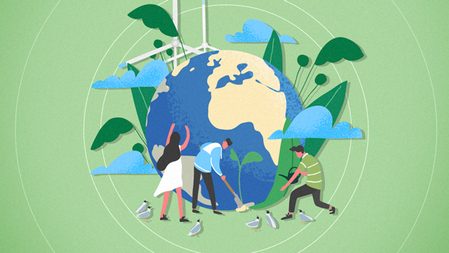
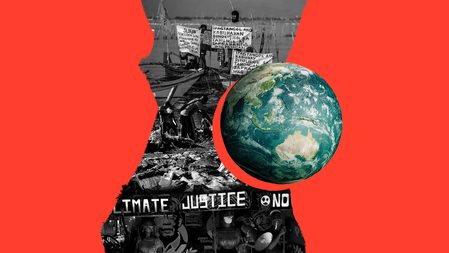
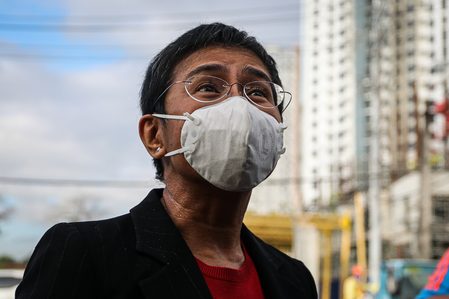


![[Time Trowel] Evolution and the sneakiness of COVID](https://www.rappler.com/tachyon/2024/02/tl-evolution-covid.jpg?resize=257%2C257&crop=455px%2C0px%2C1080px%2C1080px)


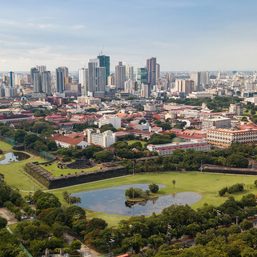
![[Rappler’s Best] Patricia Evangelista](https://www.rappler.com/tachyon/2024/04/unnamed-9-1.jpg?resize=257%2C257&crop=486px%2C0px%2C1333px%2C1333px)
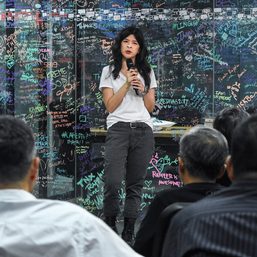
![[Be The Good] Talking AI between ridge and reef](https://www.rappler.com/tachyon/2024/04/Talking-AI-between-ridge-and-reef.jpg?resize=257%2C257&crop=270px%2C0px%2C720px%2C720px)
![[EDITORIAL] Filipino journalists to China: Yes, we are trouble](https://www.rappler.com/tachyon/2024/04/animated-wps-march-tension-2024-carousel.jpg?resize=257%2C257&crop_strategy=attention)
There are no comments yet. Add your comment to start the conversation.